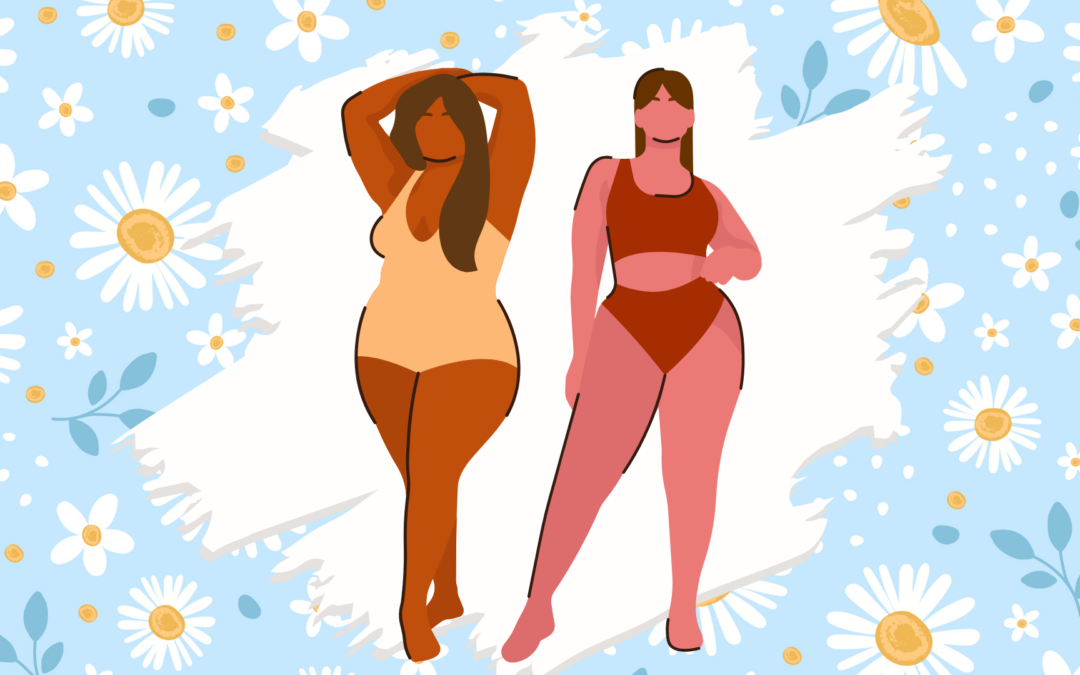Body image issues and eating disorders are pervasive among teens and young adults today. These challenges stem from societal pressures and unrealistic beauty standards perpetuated by media and social platforms. Addressing these topics from a mental health and societal perspective is crucial for fostering a healthier, more inclusive environment. This blog post aims to shed light on the impact of body image, the types of eating disorders, and how to promote body positivity and healthy habits.
Understanding Body Image and Its Impact
What is Body Image?
Body image refers to how individuals perceive and feel about their physical appearance. It encompasses beliefs, thoughts, and attitudes about one’s body size, shape, and overall attractiveness. A positive body image means feeling comfortable and confident in your skin, while a negative body image can lead to feelings of shame, anxiety, and dissatisfaction.
Media and Unrealistic Beauty Standards
The media plays a significant role in shaping our perceptions of beauty. Advertisements, TV shows, movies, and social media often portray an idealized, often unattainable, version of beauty. This constant exposure to perfection can harm self-esteem and body image, particularly among impressionable teens and young adults.
Impact on Self-Esteem
Unrealistic beauty standards lead to comparisons and feelings of inadequacy. When individuals believe they fall short of these ideals, it can result in low self-esteem and negative body image. Over time, these feelings can contribute to mental health issues, including depression and anxiety, underscoring the importance of promoting realistic and diverse representations of beauty.
Types of Eating Disorders
Anorexia Nervosa
Anorexia nervosa is characterized by an intense fear of gaining weight and a distorted body image that leads to restrictive eating and excessive weight loss. Warning signs include extreme thinness, obsession with calorie counting, and an aversion to eating in public.
Bulimia Nervosa
Bulimia nervosa involves cycles of binge-eating followed by purging through methods like vomiting or excessive exercise. Those with bulimia typically maintain a normal weight, making it harder to detect. Signs include frequent trips to the bathroom after meals and secretive eating habits.
Binge-Eating Disorder
Binge-eating disorder is marked by recurrent episodes of eating large quantities of food, often quickly and to the point of discomfort. Unlike bulimia, there are no purging behaviors. Individuals may feel a loss of control during these episodes and experience feelings of guilt or distress afterward.
Other Specified Feeding or Eating Disorders (OSFED)
OSFED includes eating disorders that do not fit the criteria for anorexia, bulimia, or binge-eating disorder but still pose serious health risks. Symptoms can vary widely but should not be dismissed as less severe.

Navigating Social Media and Its Influence on Body Image
The Double-Edged Sword of Social Media
Social media can both positively and negatively impact body image. On the one hand, it allows for the sharing of diverse body types and the promotion of body positivity. On the other hand, it can perpetuate unrealistic beauty standards through heavily edited and filtered images.
Positive Effects of Social Media
When used mindfully, social media can be a powerful tool for promoting body positivity. Influencers and communities that celebrate diversity and self-acceptance can inspire others to appreciate their unique beauty and build a supportive online network.
Maintaining a Healthy Relationship with Social Media
To maintain a healthy relationship with social media, it’s essential to critically evaluate the content you consume. Unfollow accounts that make you feel inadequate and instead follow those that promote authenticity and positivity. Remember that not everything you see online reflects reality.
Promoting a Positive Body Image and Healthy Eating Habits
Strategies for Body Positivity
Promoting body positivity involves celebrating your body for what it can do, not just how it looks. Practice self-compassion and surround yourself with positive influences. Engage in activities that make you feel good about yourself, whether it’s exercising, spending time with loved ones, or pursuing hobbies.
Encouraging Balanced Nutrition
Healthy eating is about balance, not restriction. Focus on nourishing your body with a variety of foods that provide the nutrients you need to thrive. Avoid dieting and instead adopt a mindset of intuitive eating, which emphasizes listening to your body’s hunger and fullness cues.
Physical Activity for Wellbeing
Physical activity should be enjoyable and not solely focused on weight loss. Find activities you love, whether it’s dancing, hiking, or yoga. Regular movement can boost your mood, improve energy levels, and enhance overall well-being.
Seeking Help and Support
The Importance of Professional Help
Recognizing that you need help is a critical step toward recovery. Eating disorders and body image issues are complex and often require professional intervention. Therapists, dietitians, and support groups can provide personalized guidance and support.
Resources Available at New Roads Behavioral Health
At New Roads Behavioral Health, we offer comprehensive support for those struggling with body image issues and eating disorders. Our team of experts provides evidence-based treatments, including cognitive-behavioral therapy and nutritional counseling. We also offer support groups to connect you with others who understand your experiences.
Taking Action
If you or someone you know is struggling with body image or an eating disorder, don’t hesitate to seek help. Early intervention can significantly improve outcomes. Reach out to New Roads Behavioral Health to learn more about our services and take the first step toward recovery.
Conclusion
Body image issues and eating disorders are significant concerns that affect many teens and young adults. By understanding the impact of media, recognizing the types of eating disorders, and promoting body positivity and healthy habits, we can create a supportive environment that fosters mental well-being. If you’re struggling, remember that help is available. Connect with professionals at New Roads Behavioral Health to begin your journey to a healthier, more confident you.

